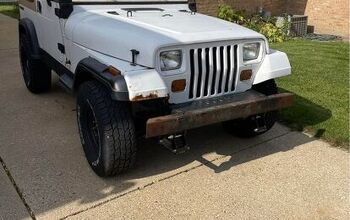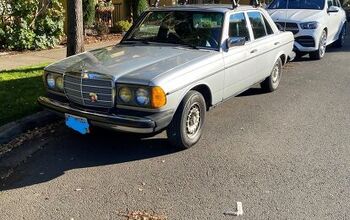Toyota Plans To Produce 1 Million Hybrids In 2011, But What About The Quality?
Toyota’s head start on hybrid technology is easily the most significant advantage any one automaker holds over any other. It’s next closest competitor in hybrid offerings is Honda which is facing serious challenges as its Prius competitor, the Insight, is off to an incredibly weak start. To capitalize on this advantage, Toyota plans to up annual production of its hybrids to one million units by 2011. Despite reports that Toyota is refocusing on hydrogen fuel cell vehicles as a long-term option, Yoshihiko Tabei, chief analyst at Kazaka Securities believes:
For the foreseeable future, the focus of Toyota’s (low-emission car) strategy will be on hybrids, not electric or fuel-cell cars. Except for Honda, Toyota is facing little competition in hybrids and is set to put distance between itself and other automakers
According to a report by the Nikkei, Toyota plans on introducing 10 new hybrid models over the next several years. Expanding the hybrid portfolio is crucial to Toyota’s ramp-up, as the firm produced a mere 500k hybrids this year, making up only 8 percent of total production. This strategy includes expanding the Prius family into a sub-brand, to include new models like the compact FT-CH concept shown at last week’s Detroit Auto Show. Switching its Mississippi plant to Prius production is another crucial component to Toyota’s ambitious hybrid strategy.
Emphasizing hybrids is a no-brainer for Toyota, but it’s not enough on its own. Automotive News [sub] breaks down some of the causes for Toyota’s decline in quality over the last year, which led to such embarassing incidents as the unintended acceleration flap and a Tacoma steering rod problem. The causes of these failures, according to Toyota’s quality czar Hiroyuki Yokoyama are:
- Toyota’s rapid increase in production.
- A proliferation of model types.
- More electronic controls.
- Swelling global ranks of employees.
- Customers’ heightened quality expectations.
Building more hybrids in more plants will make all of these problems more likely to pop up again. The Prius sub-brand project, while a better idea than Scion, also threatens to sidetrack Toyota’s once-legendary focus. And then there’s the issue larger financial results, as Toyota seems likely to rack up another North American loss this fiscal year. Toyota has some serious work cut out for itself.
More by Edward Niedermeyer
Latest Car Reviews
Read moreLatest Product Reviews
Read moreRecent Comments
- SCE to AUX All that lift makes for an easy rollover of your $70k truck.
- SCE to AUX My son cross-shopped the RAV4 and Model Y, then bought the Y. To their surprise, they hated the RAV4.
- SCE to AUX I'm already driving the cheap EV (19 Ioniq EV).$30k MSRP in late 2018, $23k after subsidy at lease (no tax hassle)$549/year insurance$40 in electricity to drive 1000 miles/month66k miles, no range lossAffordable 16" tiresVirtually no maintenance expensesHyundai (for example) has dramatically cut prices on their EVs, so you can get a 361-mile Ioniq 6 in the high 30s right now.But ask me if I'd go to the Subaru brand if one was affordable, and the answer is no.
- David Murilee Martin, These Toyota Vans were absolute garbage. As the labor even basic service cost 400% as much as servicing a VW Vanagon or American minivan. A skilled Toyota tech would take about 2.5 hours just to change the air cleaner. Also they also broke often, as they overheated and warped the engine and boiled the automatic transmission...
- Marcr My wife and I mostly work from home (or use public transit), the kid is grown, and we no longer do road trips of more than 150 miles or so. Our one car mostly gets used for local errands and the occasional airport pickup. The first non-Tesla, non-Mini, non-Fiat, non-Kia/Hyundai, non-GM (I do have my biases) small fun-to-drive hatchback EV with 200+ mile range, instrument display behind the wheel where it belongs and actual knobs for oft-used functions for under $35K will get our money. What we really want is a proper 21st century equivalent of the original Honda Civic. The Volvo EX30 is close and may end up being the compromise choice.


































Comments
Join the conversation
A few things people should note. I'm a big proponent of reading trends and making predictions. First things first, kudos to Toyota for entering the hybrid with a nice big bang. The Prius truly was a show-stopper with its amazing MPG and even politicians here in California constantly toting it as a symbol of the future. I've taken rides in this car (2nd gen) on several occasions and have always been amazed at the car's ability to handle all bumps and shocks smoothly and glide effortlessly despite its gas/electric powertrain. The futuristic button ignition, the rear-view camera, and speaker system add a nice touch to this car on top of the unique aesthetics. It's in these areas I can tell Toyota's leadership decided long ago not to compromise on the Prius' quality. However... I'm a little worried about the direction Toyota has been taking in the last 8-10 years. I've been reading more and more articles about Toyota's cars' decline in quality. I've heard only good things about the Prius, but more negatives about the Corolla, the Camry, and the Avalon the company's bread and butter. There seems to be a new trend toward the usage of cheaper plastics in its interior, a ride quality that compared to those made in the late 90's and even smaller rivals like Nissan and Hyundai isn't as refined. I'm hearing also about pedals getting stuck and the Toyota leadership being very quiet about the true cause of the sudden accelerations. I guess it's a relief that the head of the motor company who was responsible for upping the number of factories while losing focus on quality was recently replaced by the grand-son of the company founder, Toyota after the company board chastised him for his actions. I'm all for companies meeting shareholder expectations by increasing sales and profits. But I sure do hope that the Prius maintains or even improves over the generations. So far, the 3rd generation Prius has garnered mostly praises. Let's hope it stays that way for the 4th...the 5th...and so on.